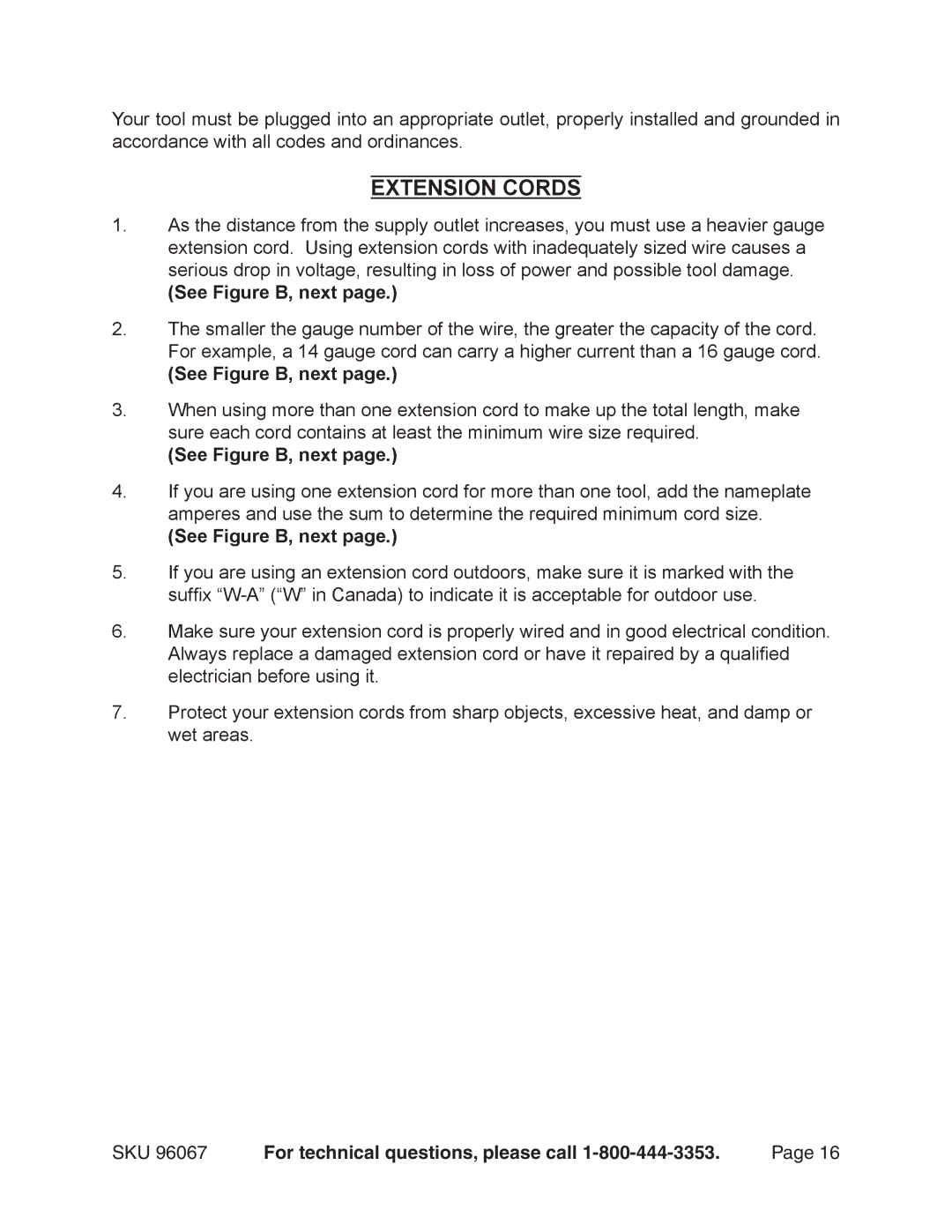Your tool must be plugged into an appropriate outlet, properly installed and grounded in accordance with all codes and ordinances.
Extension Cords
1.As the distance from the supply outlet increases, you must use a heavier gauge extension cord. Using extension cords with inadequately sized wire causes a serious drop in voltage, resulting in loss of power and possible tool damage.
(See Figure B, next page.)
2.The smaller the gauge number of the wire, the greater the capacity of the cord. For example, a 14 gauge cord can carry a higher current than a 16 gauge cord.
(See Figure B, next page.)
3.When using more than one extension cord to make up the total length, make sure each cord contains at least the minimum wire size required.
(See Figure B, next page.)
4.If you are using one extension cord for more than one tool, add the nameplate amperes and use the sum to determine the required minimum cord size.
(See Figure B, next page.)
5.If you are using an extension cord outdoors, make sure it is marked with the suffix
6.Make sure your extension cord is properly wired and in good electrical condition.
Always replace a damaged extension cord or have it repaired by a qualified electrician before using it.
7.Protect your extension cords from sharp objects, excessive heat, and damp or wet areas.
SKU 96067 | For technical questions, please call | Page 16 |
